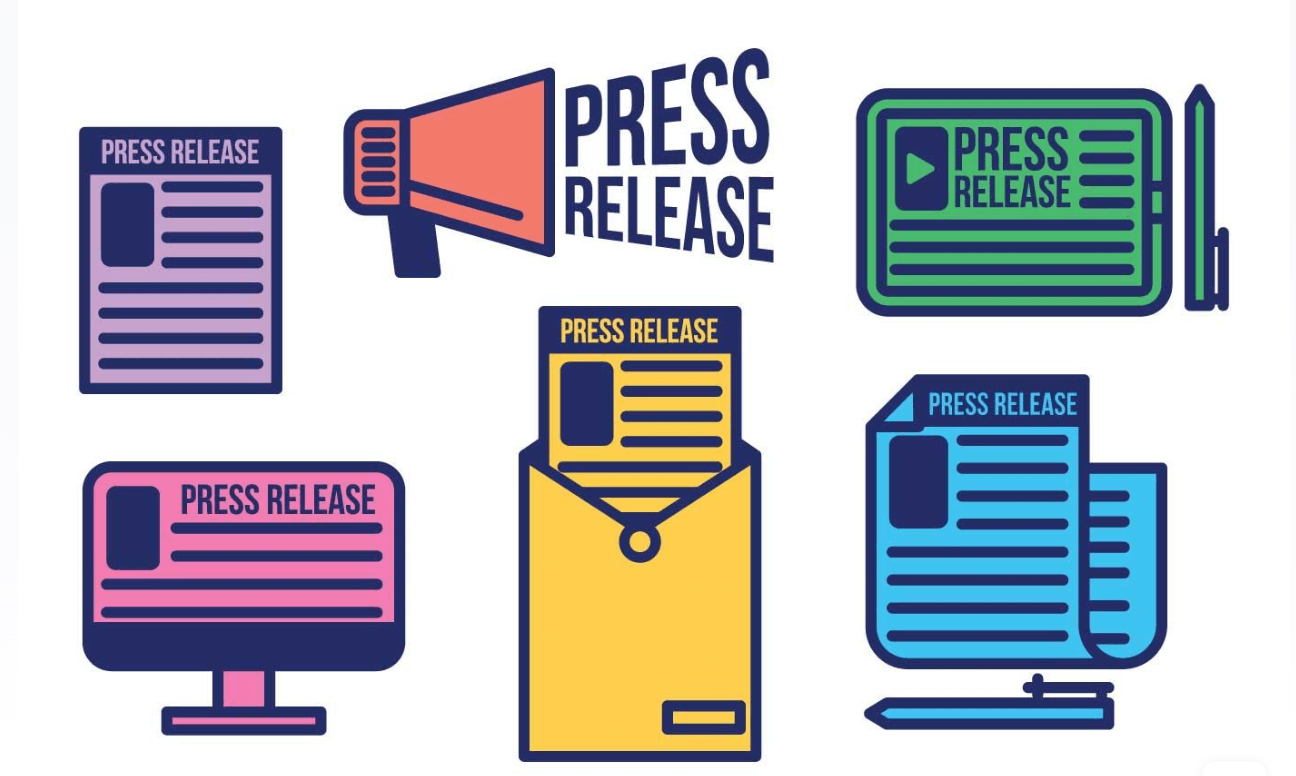In today’s fast-paced world, many people are seeking additional streams of income to supplement their primary earnings. The gig economy has emerged as a prominent solution, offering flexible work opportunities through various apps that cater to different skills and interests. This blog explores the top 24 gig apps that can help you make extra money, highlighting their unique features, benefits, and tips for success.
What is the Gig Economy?
The gig economy refers to a labor market characterized by short-term, flexible jobs rather than traditional, long-term employment. Workers, often referred to as freelancers or gig workers, engage in temporary positions or side jobs that can range from driving for a rideshare service to freelance writing or selling crafts online.
Key features of the gig economy include:
- Flexibility: Gig work allows individuals to choose when and where they work, making it an attractive option for those seeking work-life balance.
- Variety: The gig economy encompasses a wide range of jobs and services, providing opportunities for people with diverse skills.
- Autonomy: Gig workers often have more control over their workload and business practices compared to traditional employees.
Participating in the gig economy can be a rewarding way to earn extra income and gain experience in various fields.
Criteria for Selecting Gig Apps
When exploring gig apps, it’s essential to consider several criteria to ensure they align with your goals and preferences:
- Pay Rates: Evaluate the earning potential of each app to determine if it meets your financial needs.
- Flexibility: Consider the app’s scheduling flexibility and how well it fits with your existing commitments.
- Ease of Use: Choose apps that are user-friendly and have a straightforward setup process.
- Reputation: Research the app’s reputation and user reviews to ensure it is reliable and trustworthy.
Finding the right gig apps involves balancing these factors to match your skills and personal requirements.
Gig Apps for Ridesharing
Ridesharing apps offer a flexible way to earn money by providing transportation services to passengers. Here are two of the most popular options:
Uber: Uber is a leading ridesharing platform that connects drivers with passengers through its app. Drivers earn money based on the distance and time of each ride. Uber offers various service levels, including UberX, UberXL, and Uber Black, each with different earning potentials. The app also provides features like driver ratings and tips for maximizing earnings.
Lyft: Lyft is another prominent ridesharing service that operates similarly to Uber. It features a user-friendly interface and offers various ride options. Lyft’s pay structure is comparable to Uber’s, with drivers earning money based on ride distance and time. Lyft is known for its community-focused approach and frequent promotions for drivers.
Gig Apps for Food Delivery
Food delivery apps allow you to earn money by delivering meals from local restaurants to customers. Here are three notable options:
DoorDash: DoorDash is a popular food delivery service that connects drivers with customers through its app. Drivers, known as Dashers, earn money based on the delivery distance, time, and tips. DoorDash offers incentives and bonuses for completing a certain number of deliveries or working during peak hours.
Uber Eats: Uber Eats, part of the Uber ecosystem, provides food delivery services similar to DoorDash. Drivers earn based on delivery distance, time, and tips, with the added benefit of being part of the larger Uber network. The app features a streamlined interface and various payment options.
Grubhub: Grubhub connects drivers with customers through its food delivery platform. Drivers earn money based on the delivery distance and time, with the potential for additional tips. Grubhub is known for its broad restaurant partnerships and offers various incentives to drivers.
Gig Apps for Freelancing and Remote Work
Freelancing apps provide opportunities for remote work across various fields, from writing to graphic design. Here are three popular platforms:
Upwork: Upwork is a leading freelancing platform that connects clients with freelancers for various projects. Freelancers can find work in fields such as writing, programming, design, and marketing. Upwork features a robust marketplace and offers tools for managing contracts, payments, and communication with clients.
Fiverr: Fiverr allows freelancers to offer services, known as “gigs,” starting at $5. The platform covers a wide range of categories, including writing, design, and digital marketing. Fiverr is ideal for freelancers who want to showcase their skills and attract clients looking for specific services.
Freelancer: Freelancer is another popular freelancing platform where users can bid on projects in various categories. The platform offers opportunities for writing, design, programming, and more. Freelancer features a bidding system that allows freelancers to compete for projects and negotiate terms with clients.
Gig Apps for Selling Goods and Crafts
Selling apps provide platforms for individuals to sell products and crafts. Here are three top options:
Etsy: Etsy is a popular marketplace for handmade, vintage, and unique items. Sellers can create their own shops and list their products for sale. Etsy provides various tools for managing listings, processing orders, and promoting products. It’s a great platform for artisans and crafters to reach a global audience.
eBay: eBay is an online auction and shopping platform where users can sell new and used items. Sellers can list products for auction or fixed prices. eBay offers a wide range of categories, from electronics to collectibles, and provides tools for managing sales and shipping.
Poshmark: Poshmark focuses on selling fashion items, including clothes, shoes, and accessories. Users can create virtual closets and list items for sale. The platform offers features for sharing listings, engaging with buyers, and participating in virtual “Posh Parties” to increase visibility.
Gig Apps for Tutoring and Teaching
Tutoring apps offer opportunities to teach and mentor students in various subjects. Here are three popular platforms:
VIPKid: VIPKid connects English teachers with students in China for online language lessons. Teachers can set their own schedules and earn money based on the number of classes taught. VIPKid provides a structured curriculum and offers support for teachers to succeed.
Chegg Tutors: Chegg Tutors allows tutors to offer academic help in subjects such as math, science, and humanities. Tutors can set their own rates and work hours. The platform features tools for managing sessions and communicating with students.
Wyzant: Wyzant connects tutors with students for personalized tutoring in various subjects. Tutors can create profiles, set their rates, and receive requests from students. Wyzant offers a flexible schedule and provides tools for managing sessions and payments.
Gig Apps for Pet Sitting and Dog Walking
Pet care apps offer opportunities to earn money by providing services for pets. Here are two top options:
Rover: Rover connects pet sitters and dog walkers with pet owners seeking care for their animals. Sitters and walkers can set their own rates and availability. Rover provides tools for managing bookings, communicating with clients, and receiving payments.
Wag!: Wag! offers dog walking and pet sitting services through its app. Walkers can choose their own schedules and earn money based on the duration and frequency of walks. Wag! features tools for tracking walks and managing client interactions.
Gig Apps for Task-Based Work
Task-based apps allow users to complete various tasks and services for clients. Here are two popular options:
TaskRabbit: TaskRabbit connects users with people needing help with tasks such as moving, cleaning, and home repairs. Taskers can set their own rates and choose tasks based on their skills. The app offers features for managing bookings and receiving payments.
Thumbtack: Thumbtack allows users to offer services in categories such as home improvement, event planning, and personal training. Service providers can create profiles, receive job requests, and negotiate terms with clients. The platform features tools for managing leads and bookings.
Gig Apps for Renting Out Property and Space
Property rental apps provide platforms for individuals to rent out their homes or spaces. Here are two top options:
Airbnb: Airbnb allows users to rent out their homes, apartments, or rooms to travelers. Hosts can set their own prices, availability, and house rules. Airbnb offers tools for managing bookings, communicating with guests, and receiving payments.
Vrbo: Vrbo (Vacation Rentals by Owner) is similar to Airbnb, focusing on vacation rentals. Hosts can list their properties and attract travelers seeking short-term stays. Vrbo provides features for managing reservations, communicating with guests, and handling payments.
Gig Apps for Investing and Micro-Tasks
Investment and micro-task apps offer additional ways to earn money through small tasks or investments. Here are three options:
Acorns: Acorns is an investment app that rounds up users’ everyday purchases to invest the spare change. It offers a simple way to start investing with minimal effort. Acorns provides various investment portfolios based on users’ financial goals and risk tolerance.
Swagbucks: Swagbucks allows users to earn money by completing surveys, watching videos, and shopping online. Users accumulate points, known as SB, which can be redeemed for gift cards or cash. Swagbucks offers a variety of ways to earn rewards.
InboxDollars: InboxDollars offers opportunities to earn money by taking surveys, watching videos, and completing other tasks. Users accumulate earnings that can be redeemed for cash or gift cards. The platform provides a range of activities for users to earn rewards.
Gig Apps for Personal Services
Personal services apps connect users with clients seeking help with various tasks. Here are two popular options:
Handy: Handy connects users with clients needing home services such as cleaning, handyman work, and moving assistance. Service providers can set their own rates and availability. Handy offers tools for managing bookings, communicating with clients, and receiving payments.
Bellhops: Bellhops offers moving services, connecting users with clients needing help with packing, loading, and unloading. Movers can choose their own schedules and earn money based on the size of the job. The platform features tools for managing bookings and payments.
Comparing Gig Apps: Pros and Cons
When exploring gig apps, it’s important to weigh the pros and cons of each option:
- Earnings: Compare the earning potential of different apps and evaluate their pay structures.
- Flexibility: Assess the flexibility of each app in terms of scheduling and workload.
- Ease of Use: Consider the user interface and functionality of each app.
- Reputation: Research the app’s reputation and user feedback to ensure reliability.
Finding the right gig apps involves balancing these factors to match your preferences and goals.
Final Thoughts
In summary, the gig economy offers a wealth of opportunities to earn extra money through various apps. From ridesharing and food delivery to freelancing and property rentals, there are numerous ways to make additional income. By exploring the 24 gig apps listed in this blog, you can find options that align with your skills, interests, and financial goals. Embrace the flexibility and autonomy of gig work to boost your earnings and enhance your financial well-being.
FAQ:
Q1. What is a gig app?
A gig app is a mobile application that connects individuals with short-term, flexible work opportunities or freelance gigs. These apps often cover various services, including ridesharing, food delivery, tutoring, pet sitting, and more, allowing users to earn money on their own schedule.
Q2. How do gig apps work?
Gig apps typically function as intermediaries between clients who need a service and workers who provide it. After signing up and creating a profile, workers can browse available gigs, accept jobs, and complete them through the app. Payment is usually processed through the app, making it easy to track earnings and receive payouts.
Q3. Are gig apps safe to use?
Most gig apps have safety measures in place, such as background checks for workers, secure payment systems, and customer support. However, it's important for users to exercise caution, read reviews, and understand the terms and conditions of each app before starting work.
Q4. How much money can I make using gig apps?
Earnings from gig apps can vary widely depending on factors such as the type of gig, location, hours worked, and demand. Some users may earn a few extra dollars per week, while others can make a full-time income. It's important to research each app's pay structure and consider any associated costs (e.g., gas for ridesharing) when calculating potential earnings.
Q5. What are the best gig apps for beginners?
For beginners, gig apps like Uber, DoorDash, Fiverr, and TaskRabbit are great options because they are user-friendly and have a wide range of gig opportunities. These apps provide ample flexibility and are relatively easy to start with minimal experience or specialized skills.
Q6. Do I need to pay to use gig apps?
Most gig apps are free to download and use. However, some may charge fees, such as a percentage of your earnings or a service fee for processing payments. It's important to understand the fee structure of each app before starting to ensure it aligns with your financial goals.
Q7. Can I use multiple gig apps at the same time?
Yes, many gig workers use multiple apps simultaneously to maximize their earning potential and diversify their income sources. This strategy allows workers to switch between apps based on demand, availability, and personal preference, ensuring a steady stream of work.
Q8. Are there any requirements to start working with gig apps?
Requirements vary depending on the app and the type of gig. Common requirements include being at least 18 years old, having a valid driver's license for driving apps, passing a background check, and having access to a smartphone. Some apps may also require specific skills or certifications, such as tutoring or handyman services.
Q9. How do I get paid through gig apps?
Most gig apps pay workers through direct deposit to a bank account or a linked payment service like PayPal. Payments can be made on a weekly basis, after each gig, or once a certain earnings threshold is met, depending on the app's policy.
Q10. What should I consider when choosing a gig app?
When choosing a gig app, consider factors such as the type of work you're interested in, potential earnings, flexibility, app usability, customer support, and any fees involved. It's also helpful to read reviews and talk to other gig workers to get a sense of the app's reputation and user experience.
These FAQs provide a helpful overview for readers who are interested in using gig apps to make extra money, addressing common questions and concerns about the gig economy
Get in Touch
Website – https://www.webinfomatrix.com
Mobile - +91 9212306116
Whatsapp – https://call.whatsapp.com/voice/9rqVJyqSNMhpdFkKPZGYKj
Skype – shalabh.mishra
Telegram – shalabhmishra
Email - info@webinfomatrix.com








 English (US) ·
English (US) ·